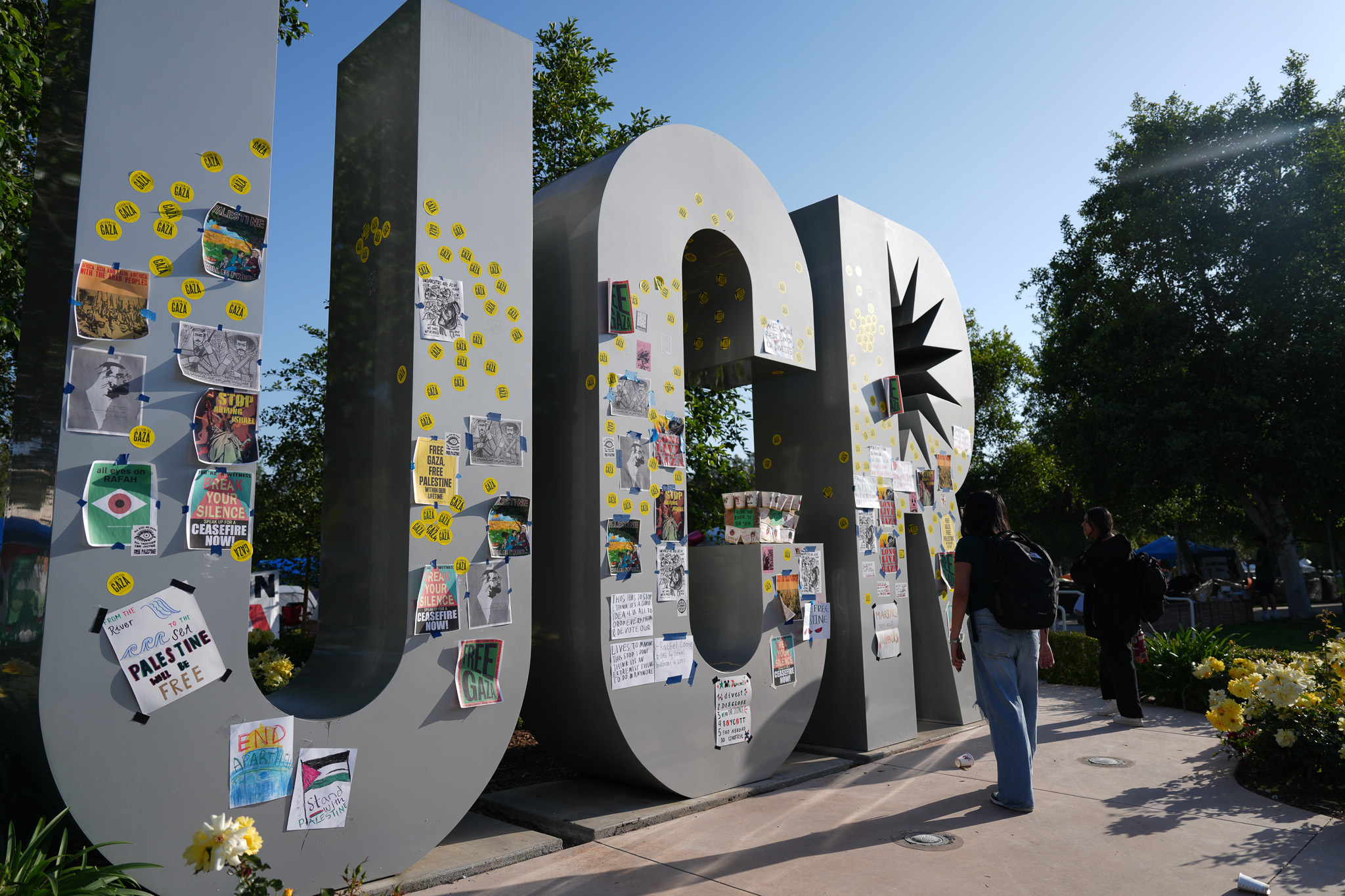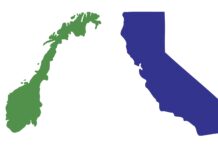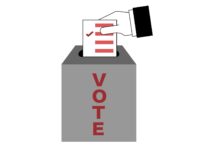
Inspired by Columbia University’s “Gaza Solidarity Encampment,” pro-Palestinian protests have spread nationwide at college campuses, including the University of California (UC) schools, in the past week. Setting up tents and leading protests, students are standing in solidarity with Palestinians, urging for a ceasefire and pushing the university administration to divest from firms doing business with Israel. The UC campuses and universities across the country have responded to these encampments and protests with different strategies, including ones that inflict violence upon students. The solutions offered by many schools are more than an embarrassment; they call into question each university’s commitment to student safety and basic civil rights.
When UC Riverside’s (UCR) encampments began on April 29, Chancellor Kim Wilcox sent an email to students and faculty outlining the “immediate actions” and policies that the administration would enforce to ensure safety, including taking down “large signs and banners,” removing “chalk writing on the ground” and preventing the blocking of campus venues. Initially, this message alone sent underlying warnings of censorship and hostility to the protestors.
However, Students for Justice in Palestine (SJP) leaders and UCR administrators began negotiating on May 1 and held an “eight-hour” meeting the following day. It is likely that Chancellor Wilcox was preparing for the subsequent close session meeting with UC President Drake and all the other UC Chancellors to review “safety concerns on campus.” On May 3, SJP announced a successful negotiation agreement with the university administration, making it the first UC campus to reach an amicable agreement with student protestors. This led to celebrations on campus and a reminder of the enduring importance of the right to protest.

Unfortunately, UCR’s response to the peaceful encampment has not been the norm. UC Los Angeles’ (UCLA) administration has sparked criticism for its delayed and aggressive enforcement of on-campus encampments. On April 30, around 4 p.m. at Royce Quad, protestors at UCLA were informed that the encampment had been declared “unlawful” and were advised that they would face suspension if they did not vacate the area. Later that evening, pro-Israel protesters violently attacked pro-Palestinian students with pepper spray, fireworks and tear spray. The attack continued for three hours before the Los Angeles Police Department (LAPD) and California Highway Patrol arrived on the scene.
The attack on the UCLA encampment provided the administration with the latitude to censor and arrest students participating in peaceful protests. On May 2, the encampment was taken down by LAPD officers in riot gear, and over 200 arrests were made. Going forward, it’s unclear to activists exactly how this movement will continue at UCLA and just how much damage the UCLA administration’s failures have caused.
UCLA’s failed response should not give the green light for UC administrations to censor and arrest students participating in peaceful protests on other campuses. Campuses must divert to offering solutions as peaceful as the protests have been. As a public institution, the UC system has a responsibility to facilitate freedom of speech while protecting students. Faculty members and students should be able to express their opinions and assemble without fearing administrative retaliation or being shot with rubber bullets. Moving forward, the UC must communicate and listen to protestors so that productive discussions and progress are made, rather than allowing its students to be violently attacked and then arrested. One campus is not enough.
Historically, young people have pushed boundaries on political issues — specifically on college campuses — and are often labeled as “rebellious” or “too idealistic.” Counting on the younger generation to be politically apathetic or unaware is not a solution, nor is it based on reality. In 1985, for example, UC Berkeley students staged similar encampments near the steps of Sproul Hall to protest South African apartheid and demand that the university divest from investments in South Africa.

Gen Z has grown up in an unprecedented time with unique issues, such as climate change, mass shootings, political polarization and a global pandemic. The pro-Palestinian protests spreading worldwide show that this generation is a strong political force. Bringing a new perspective on an almost hundred-year-long issue, the recent encampments force others to learn more about and confront this issue. Using social media, students have been able to disseminate information and report updates quickly, making university censorship that much more difficult. By documenting arrests at Hamilton Hall at Columbia and protestors standing in defiance against state troopers at the University of Texas, they have been able to put their institutions under a spotlight in a way no previous generation has. Gen Z is accustomed to being discounted by political elders, and they will not be discouraged by an unsupportive and unresponsive negotiating entity.
From the Student Researchers United-United Automobile Workers (SRU-UAW) protests fighting for increased wages for academic workers and the Providing Opportunities, Dreams, and Education at Riverside (PODER) advocating for equal employment opportunities for undocumented students, UC students are at the forefront of making effective change. The UC administration must divert to a peaceful response to these protests and facilitate an open dialogue with student voices. Universities cannot expect these students to give up and no amount of riot gear, rubber bullets, pepper spray, tear gas or violence will be enough to silence them.








